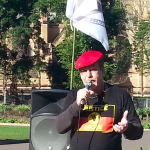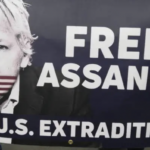Fascinating Cases: First Slavery Prosecution in Australia

Slavery has been illegal for the majority of Australia’s post-colonial history – although it has existed and continues to exist right up to today. Here, like in the rest of the world, human trafficking and sexual servitude are a hidden but very real problem.
Despite anti-slavery laws being in place since the early 1800s, the first ever prosecution case took place in Australia less than a decade ago, in the case of R v Tang (2008).
The Case of Tang
The defendant was Wei Tang, the owner of a Brothel in Fitzroy, Victoria.
Five women working at the brothel had been voluntarily flown to Australia from Thailand. Four of them ended up working in Tang’s brothel. Each woman earned $50 per customer, but this money went towards paying off their $45,000 “debt.” The women worked 6 days per week, earning no cash for working on those days – only when they worked on their “free” day did they get to keep their $50 cut.
The women were here on illegal visas, and were told that if they failed to comply with the demands of their employer, they would be in trouble from immigration authorities. The woman had no access to their passports or return flight tickets.
Ms Tang agreed that the women were exploited as employees, but said that their treatment did not amount to slavery. She was nevertheless convicted and sentenced to ten years in prison. She appealed to the Victorian Court of Appeal, where she was successful – Court finding that an incorrect direction had been given to the jury. The prosecution then appealed to the High Court.
The High Court Appeal
The High Court found that although the complainants were not under lock and key – this was not a vital component of imprisonment. The important thing was that the women rarely left the brothel, and only ever with the consent of the owner, or with supervision. The Court found that the nature of the women’s work and long working hours severely restricted their ability to leave the premises. It further noted that the existence of an employment contract did not necessary exclude the existence of slavery.
The High Court stated:
“powers of control, in the context of an issue of slavery, are powers of a kind and degree that would attach to a right of ownership if such a right were legally possible, not powers of a kind that are no more than an incident of harsh employment.”
The Court held that the trial judge’s direction to the jury was not an error, and accordingly allowed
the prosecution appeal. Ms Tang’s conviction was restored, making this case the first time that a person in Australia has been convicted of slavery under s 270.3(1)(a) of our Criminal Code Act 1995.
The Offence of Slavery in Australia
As we all know, Australian colonies were initially governed by British law. By the early 1800s, British laws prohibited the practice of slavery through the “Imperial Slave Trade Enactments.”
In 1999, Commonwealth legislation was enacted in Australia to explicitly prohibit slavery through domestic criminal laws.
Slavery is defined by the Commonwealth Criminal Code Act as:
“the condition of a person over whom any or all of the powers attaching to the right of ownership are exercise, including where such a condition results from a debt or contract made by the person.”
While the Criminal Code contains several offences relating to slavery, the maximum penalty is generally 25 years imprisonment.
The Sugar Boycott of 1791
The sugar boycott was an inspiring example of people power when it comes to demanding human rights.
In the late 1700s, the English public made it clear that they disapproved of slavery. This was long before the practice was abolished in the United States in 1865.
Before this period, in Medieval times, sugar had been a luxury enjoyed only by the elite – but the use of slavery in America saw prices drop. In 1791, a huge public movement led by abolitionists came to a head, and sugar made by slaves was boycotted by an estimated 300,000 British people – who either abandoned the sweetener altogether or purchased it from the East Indies, where slave labour was not used.
Sugar consumption decreased by up to 50%, and hundreds of thousands of Brits signed a petition to abolish slavery.
It would take several more years before the UK slave trade was finally abolished in 1807 with the passing of the Slave Trade Act. And despite its economic benefits for slave owners, the practice was eventually made illegal throughout the British Empire under the Slavery Abolition Act 1833.






